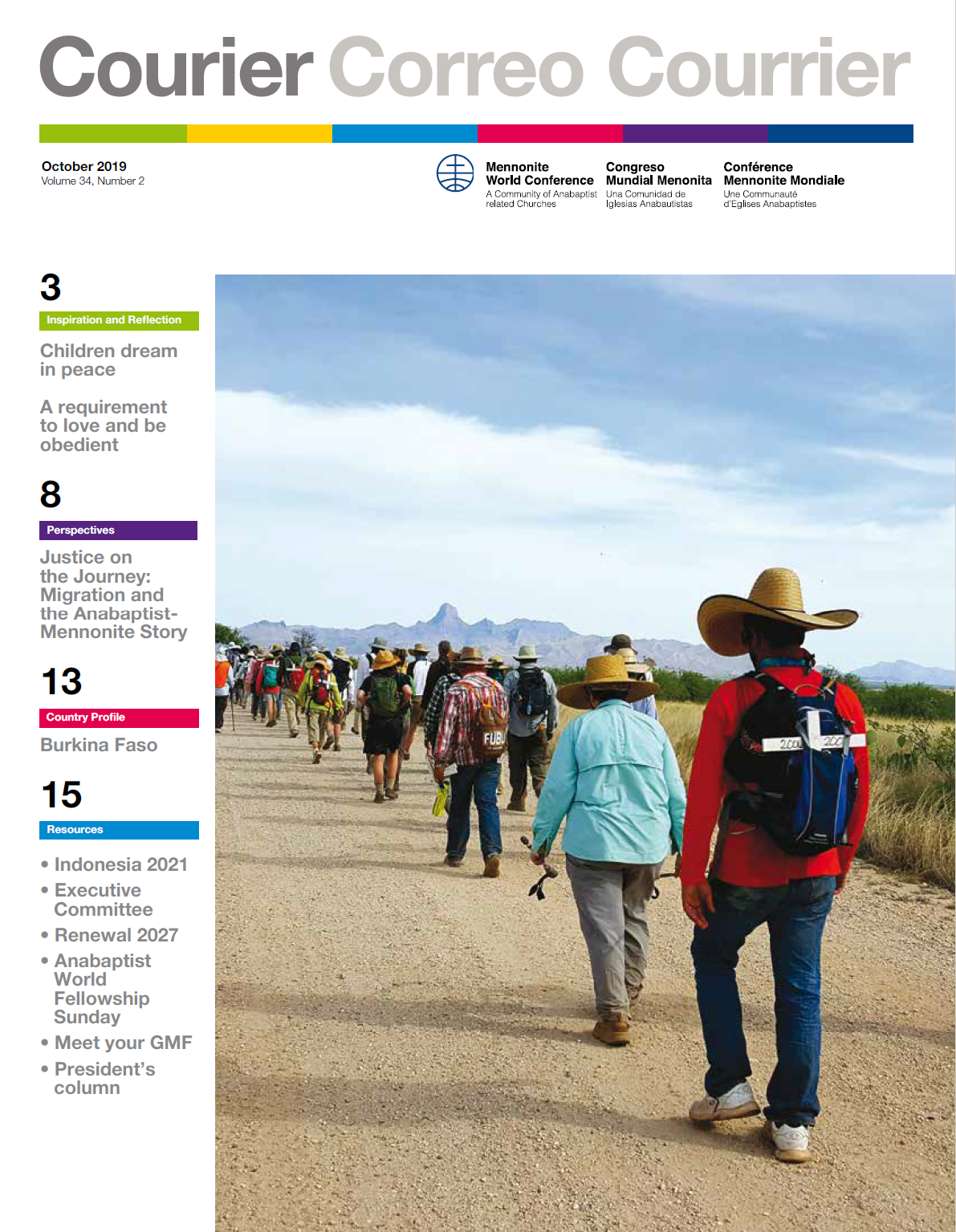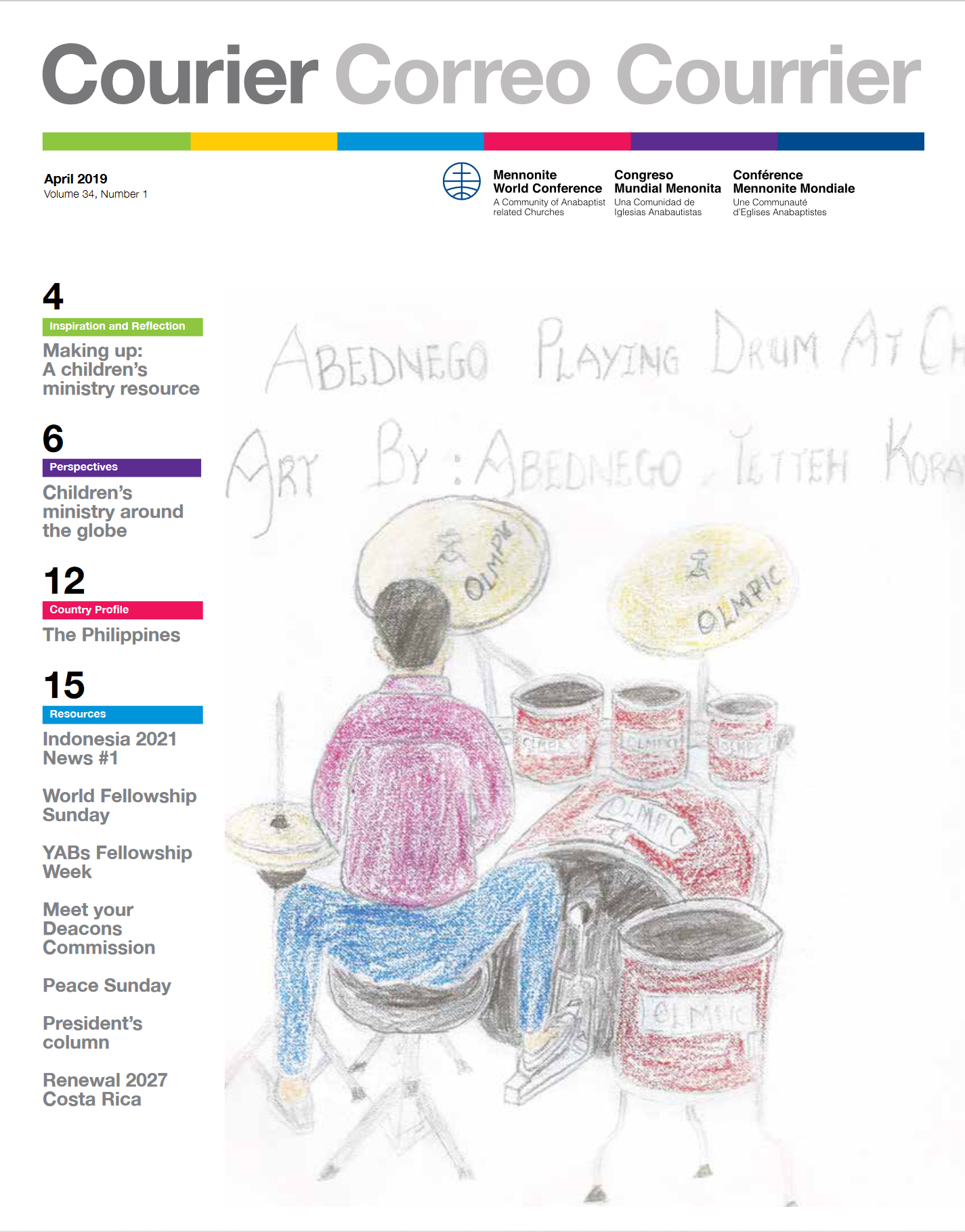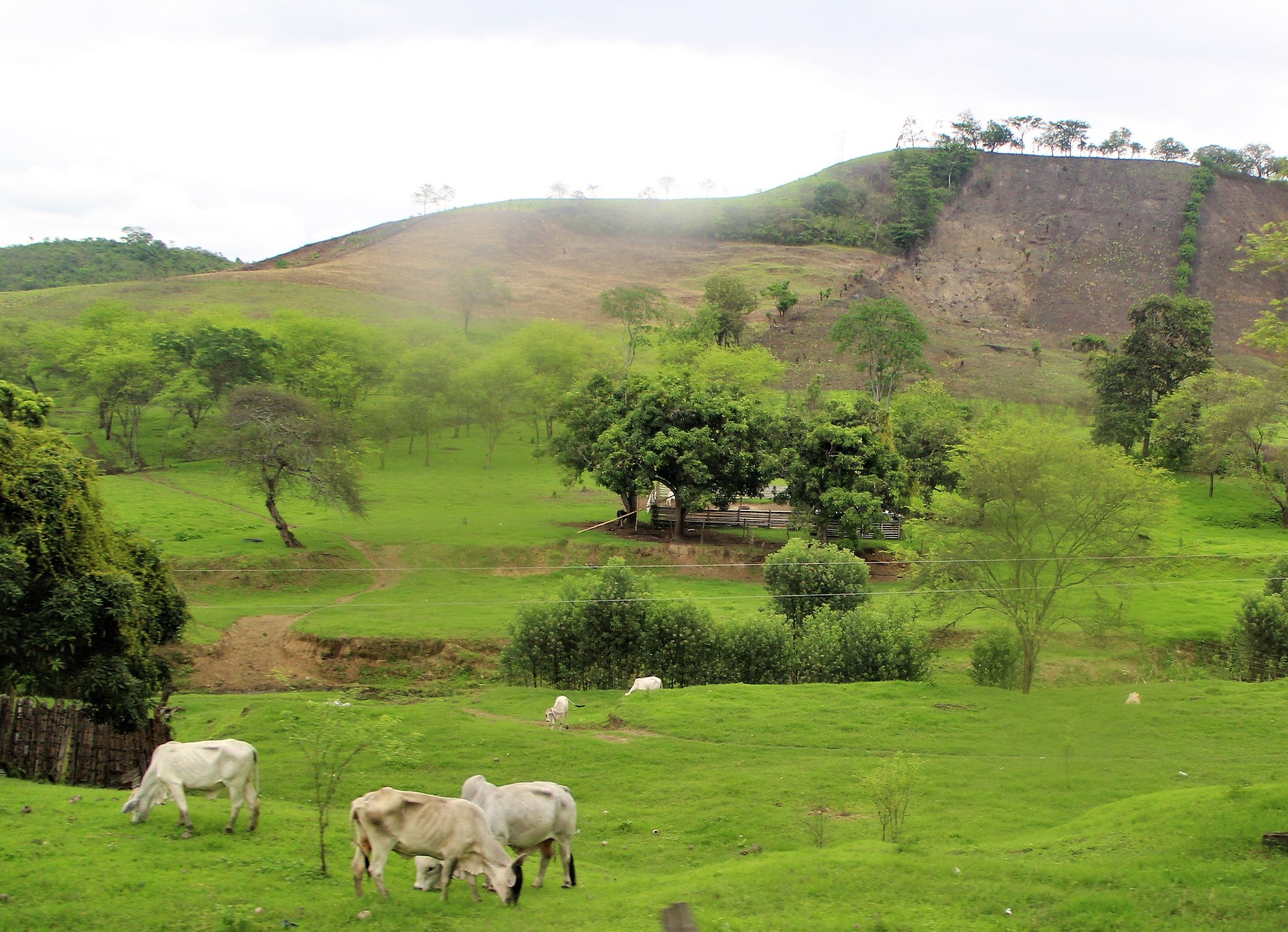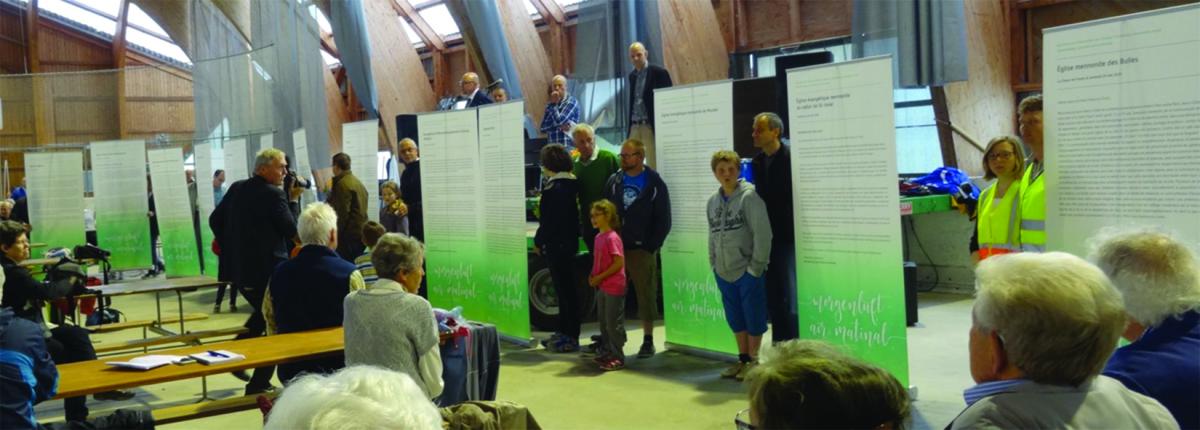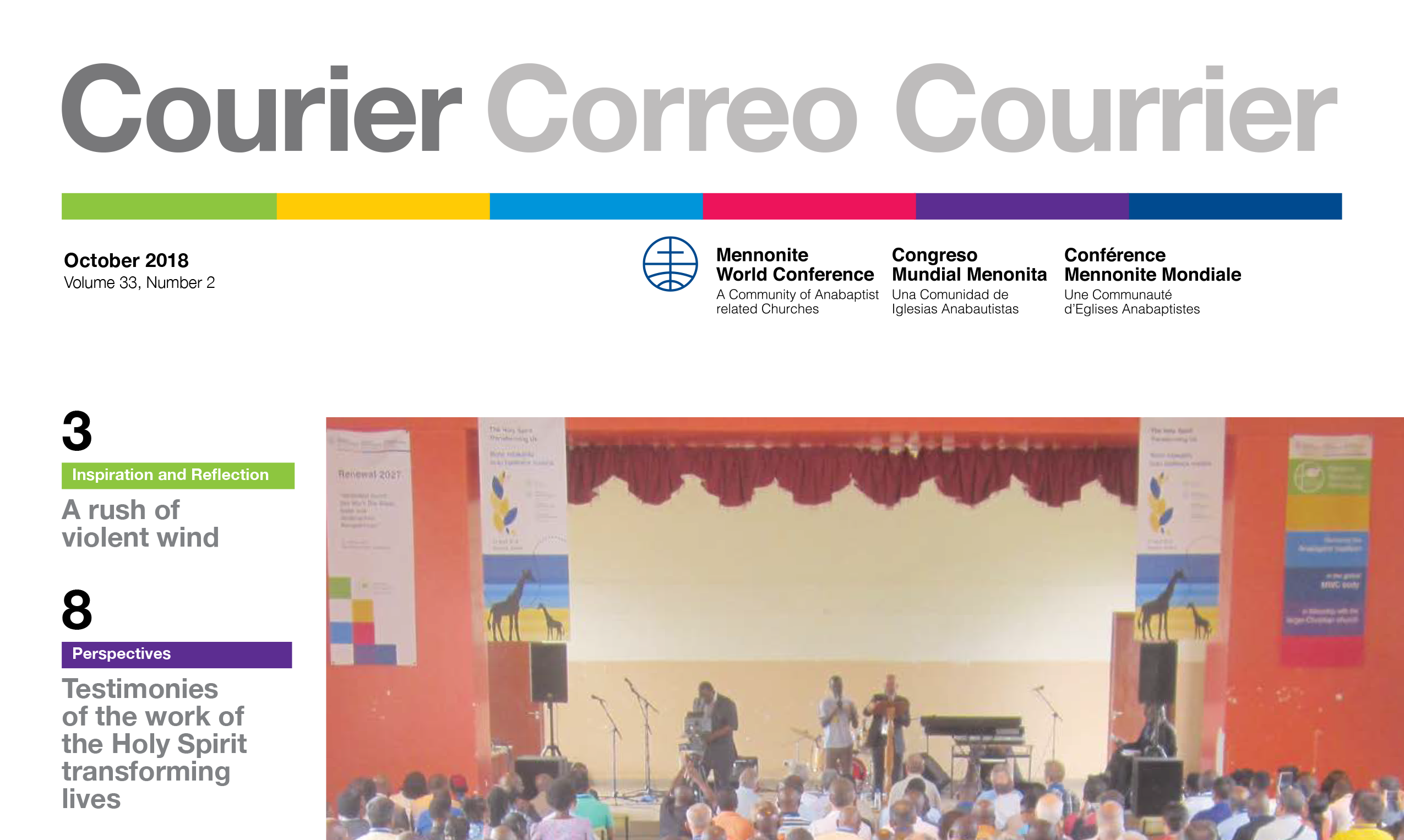-
Courier 2019 / 34.2
Click the image below to view the magazine as PDF. Stories in this issue Children dream in peace ‘One another’s keepers’ A requirement to love and be obedient Opening our arms and hearts to migrants Responding to displaced people Grey does not have to stay grey Foreigners on a pilgrimage Our God is a restorer
-
A gentle peace witness: The Mennonite church in the Philippines
Since 2016, the Philippines has been led by a president who is controversial for his anti-drug campaign. There has been an increase in extra-judicial killings where policemen are said to execute drug pushers and anyone who fights back. There is a massive support for the charismatic president, yet there are also controversies around his character
-
On climate: the global church needs to CHANGE
“The earth is the LORD’s and all that is in it, the world, and those who live in it; for he has founded it on the seas, and established it on the rivers” (Psalm 24:1–2). “Climate change”: these two words often generate anxiety concerning the future of not only humanity, but the entire planet. The
-
A transformed spirit of listening
At Renewal 2027 – The Holy Spirit Transforming Us in Kisumu, Kenya, 21 April 2018, several people shared a testimony of experiencing the Spirit’s work changing people in the church. The columns in this section have been adapted from their presentations. It was time to come together for a church community day and celebrate – but celebrate what? God’s faithfulness in the past in our long history
-
A transformed spirit of answered prayer
At Renewal 2027 – The Holy Spirit Transforming Us in Kisumu, Kenya, 21 April 2018,several people shared a testimony of experiencing the Spirit’s work changing people in the church. The columns in this section have been adapted from their presentations. The Holy Spirit is the third person of the Trinity: God the Father, God the Son and
